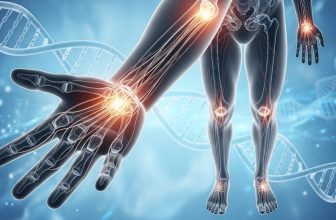
Alcohol and Dupuytren’s: The Role of Drinking in Fibrosis
Alcohol and Dupuytren’s: The Role of Drinking in Fibrosis
Categories: Dupuytren’s Contracture; Lifestyle Risks; Alcohol; Fibrosis
Keywords: Dupuytren’s contracture, alcohol, drinking, fibrosis, collagen, inflammation, connective tissue, liver disease, oxidative stress
Slug: alcohol-and-dupuytrens
Meta Description: Alcohol use can worsen Dupuytren’s fibrosis. Learn how drinking affects collagen and disease progression.
Suggested Alt Text: “Glass of alcohol next to hand showing fibrosis cords”
Source & Link: J Hand Surg Br. 2006; 31(6): 581–586. https://www.ncbi.nlm.nih.gov/pmc/articles/PMC2078080/
License: CC-BY 2.0
Alcohol and Dupuytren’s: The Role of Drinking in Fibrosis
Introduction
Alcohol is one of the strongest modifiable risk factors for Dupuytren’s contracture. Studies show that heavy drinking can stimulate fibrosis throughout the body — including the hands. Understanding this connection helps patients make healthier choices that slow disease progression.
How Alcohol Affects Connective Tissue
When the liver processes alcohol, it produces acetaldehyde — a toxic compound that triggers inflammation and collagen production. Long-term exposure leads to fibrotic changes not only in the liver but also in skin, tendons, and fascia. Alcohol also increases oxidative stress, reducing the body’s antioxidant capacity and damaging fibroblast control.
Research Findings
Up to 60 % of Dupuytren’s patients report a history of heavy alcohol use. The risk rises with both the amount and duration of consumption. People who both drink and smoke face a multiplicative risk for fibrosis and earlier onset of contracture.
Systemic Impact
Alcohol-related fibrosis isn’t limited to the hands. Chronic intake also promotes liver cirrhosis, pancreatic scarring, and vascular stiffness — evidence that the entire connective-tissue system is affected. Dupuytren’s is often the first visible sign of this body-wide process.
Patient Guidelines
If you drink, limit to no more than 1 serving per day for women or 2 for men.
Avoid binge drinking or weekly “catch-ups.”
Support the liver with antioxidant-rich foods and hydration.
Discuss alcohol intake openly with your doctor before procedures.
Why Moderation Matters
Even reducing alcohol rather than quitting entirely can lower recurrence after surgery or injection. Patients who cut back often report less stiffness and better post-treatment healing.
Conclusion
Alcohol fuels fibrosis through inflammation and collagen stiffening. For Dupuytren’s patients, moderation or abstinence is a simple yet powerful step toward protecting connective tissue and maintaining hand function.
Legal & Medical Disclaimer
This content is for informational and educational purposes only and is not a substitute for professional medical advice, diagnosis, or treatment. Always consult your healthcare provider about any medical concerns or treatment options. Dupuytren’s Solutions is an educational resource meant to be used alongside, not instead of, professional care, and individual results may vary.
Call to Action
Learn about lifestyle risks and Dupuytren’s prevention at DupuytrensSolutions.com. Join our support community for encouragement and success stories: facebook.com/groups/dupuytrenssolutionsandhealth.
Attribution
(CC BY 2.0) Adapted from Bayat A et al. Alcohol and Dupuytren’s Contracture. J Hand Surg Br. 2006; 31(6): 581–586. Licensed under Creative Commons Attribution 2.0. For the complete article and reference list, click Source.





